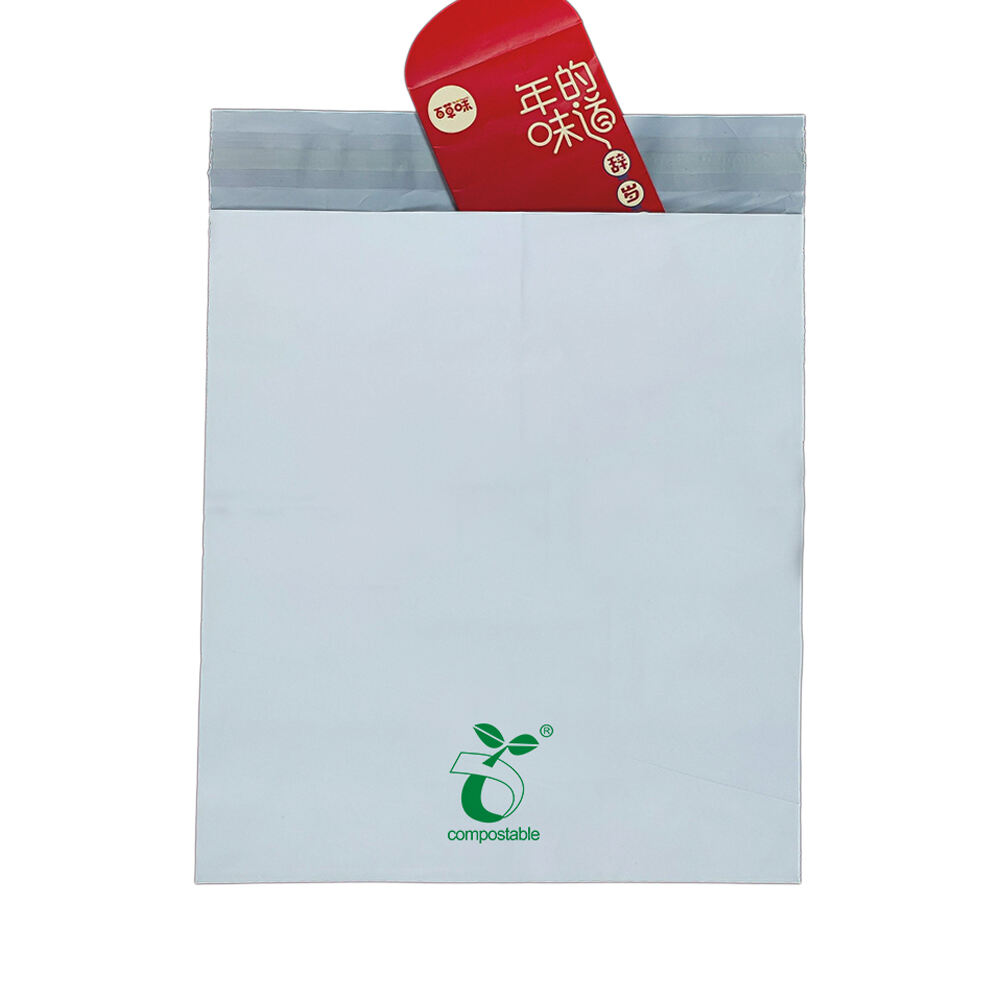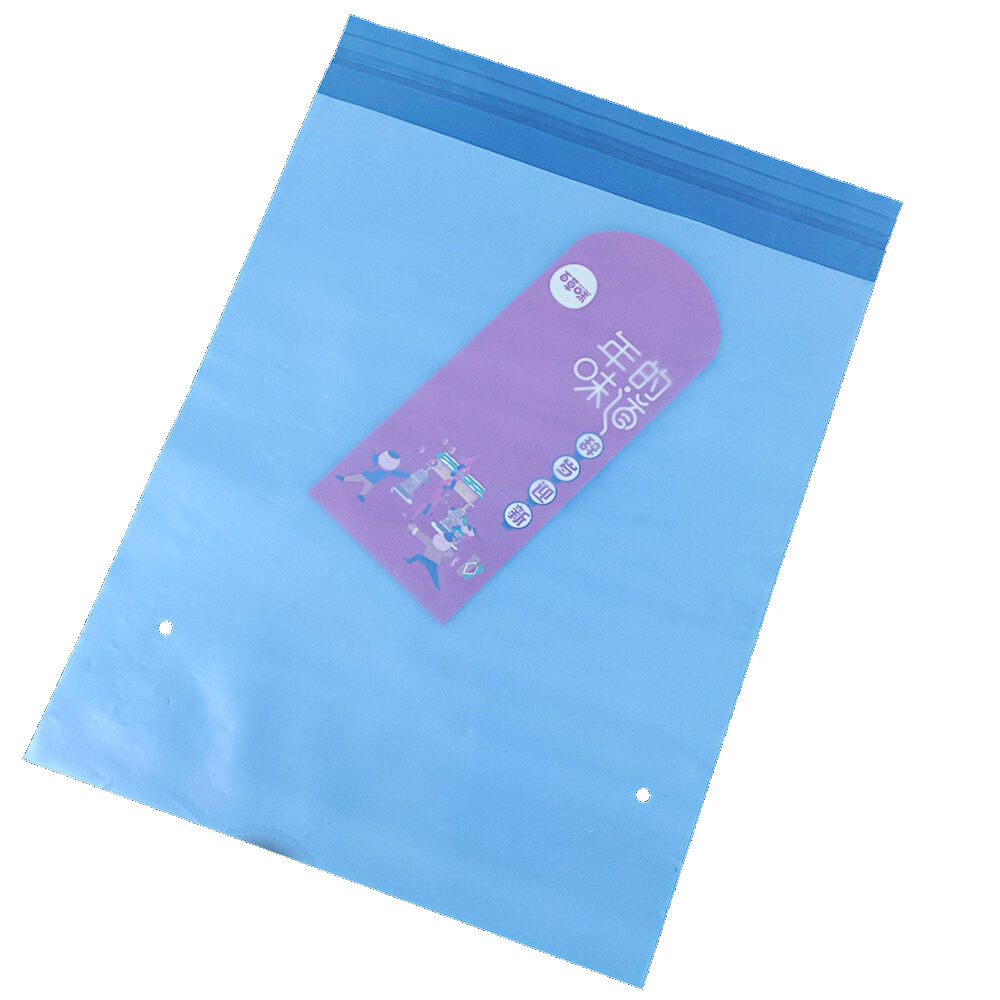What Are Compostable Bags? Breaking Down the Basics
Core Materials: Plant-Based Resins and Renewable Resources
Compostable bags are changing the way we handle waste, thanks to materials made from cornstarch, potato starch, and various other renewable sources instead of regular plastic. What makes these bags special is that they actually break down over time when composted properly, turning back into soil rather than sitting around for centuries. The real advantage comes from those plant-based ingredients which can regrow year after year, unlike old fashioned plastics derived from oil that simply run out eventually. Making this switch isn't just good for landfills either it helps point the whole packaging industry in a direction where products don't create endless waste problems down the road.
How Compostable Bags Decompose in Commercial Systems
Compostable bags work best when they're broken down at industrial composting sites where temperatures and moisture levels are just right for speeding up the whole process. Most of these bags will actually decompose in about 3 to 6 months time frame, something that stands in stark contrast to regular plastics which can hang around for hundreds of years before finally breaking apart. The real green benefit only happens though if people actually put these compostable bags into the right kind of facility specifically built for handling this type of waste material. When disposed correctly, what starts as a bag ends up turning into good quality compost that goes back into the earth, helping plants grow better while cutting down on all that pesky plastic trash we see everywhere nowadays.
Microplastic Pollution Reduction in Oceans and Landfills
Compostable bags offer real hope for tackling the growing problem of microplastics polluting both our oceans and landfills. Unlike regular plastics, these special bags actually decompose fully without leaving behind those tiny plastic particles that cause so much damage. Think about it: every single year around 8 million metric tons of plastic trash finds its way into the sea, which is absolutely devastating for marine animals and their habitats. If people switch to compostable alternatives, there's definitely a chance to cut down on this environmental disaster. But here's the catch they need to go into proper composting systems, not just tossed anywhere. The fact remains though, these compostable options have genuine potential to slash microplastic levels, making them an important part of any serious effort to clean up our planet.
Fossil Fuel Dependency vs. Carbon-Neutral Alternatives
Making regular plastic bags means burning through tons of fossil fuels, which spews out lots of greenhouse gases during manufacturing. On the flip side, compostable bags made from plants use resources that regrow naturally and typically require far less carbon to produce compared to oil-based plastics. When companies switch from standard plastic to these compostable options, they actually cut down on overall carbon emissions throughout the product's entire life cycle. Moving away from petroleum dependency isn't just good for the planet, it makes business sense too as consumers increasingly demand greener choices. While there are still hurdles to overcome in widespread adoption, many forward thinking businesses have already started making the switch to compostable packaging solutions as part of broader sustainability efforts.
From Kitchen to Compost Bin: Practical Daily Applications
Leak-Proof Solutions for Food Waste Collection
Compostable bags work really well for collecting food scraps without leaks, particularly useful in home kitchens where things get messy. They hold onto all that juicy vegetable waste and smelly leftovers so the kitchen stays relatively clean instead of smelling like old pizza after a few days. Just toss these bags straight into the compost heap when full makes managing kitchen waste much simpler than dealing with regular trash bags. Most people find this method convenient enough that they actually stick with it long term, which means more families start composting regularly because there's no hassle involved in switching out containers or cleaning special bins every time.
Grocery Shopping Without Plastic Guilt
Compostable bags have become a popular choice among shoppers looking for alternatives to regular plastic bags, and most major grocery stores stock them at checkouts these days. People concerned about environmental issues are turning to these options as they try to cut down on plastic waste in their daily lives. Switching to compostable bags reduces reliance on those one-time use plastics while supporting the growing trend toward living with less waste overall. When folks grab these bags instead of plastic ones during their weekly shop, they're making small decisions that contribute to larger goals of keeping Earth healthy for kids growing up today.

Scientific Backing: Lifecycle Studies Prove Emission Reductions
Carbon Footprint Comparisons in Production Phases
Looking at the whole lifecycle, compostable bags actually emit far less CO2 during manufacturing than regular plastic bags do. Research shows they cut down on carbon footprints across the board. Environmental groups have run the numbers too, and what they found is pretty convincing evidence that these compostables can make a real dent in global warming problems. From start to finish - when we think about how they're made all the way through to what happens after we toss them - compostable bags present something genuinely sustainable. They fit right into modern waste management plans while still hitting those important ecological targets many communities are striving for today.
Energy Efficiency in Industrial Composting Facilities
Studies show that industrial composting of compostable bags actually uses less energy compared to what goes into disposing of regular plastics and watching them slowly break down over years. Plus there's something called energy recovery happening during the composting process itself, which cuts down on how much extra power these facilities need to run. As companies keep developing better composting tech, we should see improvements in how efficiently these systems handle compostable materials. The industry seems pretty optimistic about where things are heading, though nobody can predict exactly when we'll reach those ideal sustainability levels everyone keeps talking about. What's clear is that compostable options represent a real step forward from our current waste management nightmares.
Why Businesses Adopt Compostable Packaging Strategies
Building Brand Loyalty with Eco-Conscious Shoppers
More and more businesses are turning to compostable packaging these days if they want to catch the attention of shoppers who care about the environment. When companies put their goods inside compostable bags instead of regular plastic, it shows they get what matters to people who try to live sustainably. That kind of alignment builds customer loyalty over time. The marketing angle works too - highlighting compostable packaging gives brands something different to talk about on store shelves. Studies suggest folks actually pay extra for products wrapped this way, though prices still need to stay reasonable enough for most budgets. Bottom line? Going green with compostable bags isn't just good for the planet anymore. It turns out it makes business sense as well when done right.
Meeting Zero-Waste Retail Certification Standards
Switching to compostable packaging is becoming essential for businesses wanting to hit those zero waste retail certification marks something lots of stores are getting serious about these days. When companies start using compostable bags instead of plastic ones, they show customers they care about going green and cutting down on trash which matters a lot since most certifications focus heavily on reducing waste and promoting earth friendly habits. People notice this kind of effort too many shoppers actually prefer supporting brands that take real steps toward sustainability rather than just talking about it. Getting certified under zero waste programs tells everyone that a business isn't waiting around for regulations to catch up but actively working on making things better for the planet. This kind of forward thinking builds customer confidence over time and makes the brand stand out in a crowded market place where environmental responsibility counts for something real.
Optimizing Compostable Bag Use: Tips for Maximum Impact
Identifying Certified Industrial Composting Partners
To maximize the environmental benefits of Compostable Bags, it's essential to ensure they are processed in appropriate facilities. These bags require specific composting conditions to fully decompose. Therefore, identifying certified industrial composting partners is crucial. Researching local composting facilities that have the necessary certifications to accept Compostable materials is a key step towards effective waste management. Collaborating with these partners not only facilitates proper disposal but also enhances the visibility and impact of sustainability initiatives within communities. As more businesses and individuals make the switch to eco-friendly alternatives, forming strong partnerships with certified composting facilities becomes increasingly vital in supporting a greener future.
Avoiding Common Contamination Pitfalls
Getting people educated on what actually goes into compost versus what doesn't matters a lot if we want to keep those special compostable bag collections free from regular plastic trash. We see all sorts of mix ups happen every day where folks throw their old plastic containers into compost bins by accident, which totally ruins what makes compostable bags so good in the first place. Companies need better ways to talk to customers about how these green products work properly. When businesses take time to explain exactly what should go where, they cut down on contamination problems and get more value out of their compostable bags. Setting up simple rules for handling compostable materials helps prevent mess ups while at the same time building trust that the company genuinely cares about being eco friendly.
FAQ
What are Compostable Bags made from?
Compostable Bags are made from plant-based materials like cornstarch, potato starch, and other renewable resources.
How long do Compostable Bags take to decompose?
Under proper conditions in industrial composting facilities, Compostable Bags typically decompose within 90 to 180 days.
Can Compostable Bags be disposed of in regular trash bins?
No, Compostable Bags should be disposed of in specialized composting facilities to ensure proper decomposition.
Do Compostable Bags leave microplastics behind?
No, Compostable Bags are designed to break down completely without leaving harmful microplastic residues.
How do Compostable Bags help reduce fossil fuel dependency?
Compostable Bags rely on renewable resources with a lower carbon footprint, offering a sustainable alternative to fossil fuel-based plastics.



